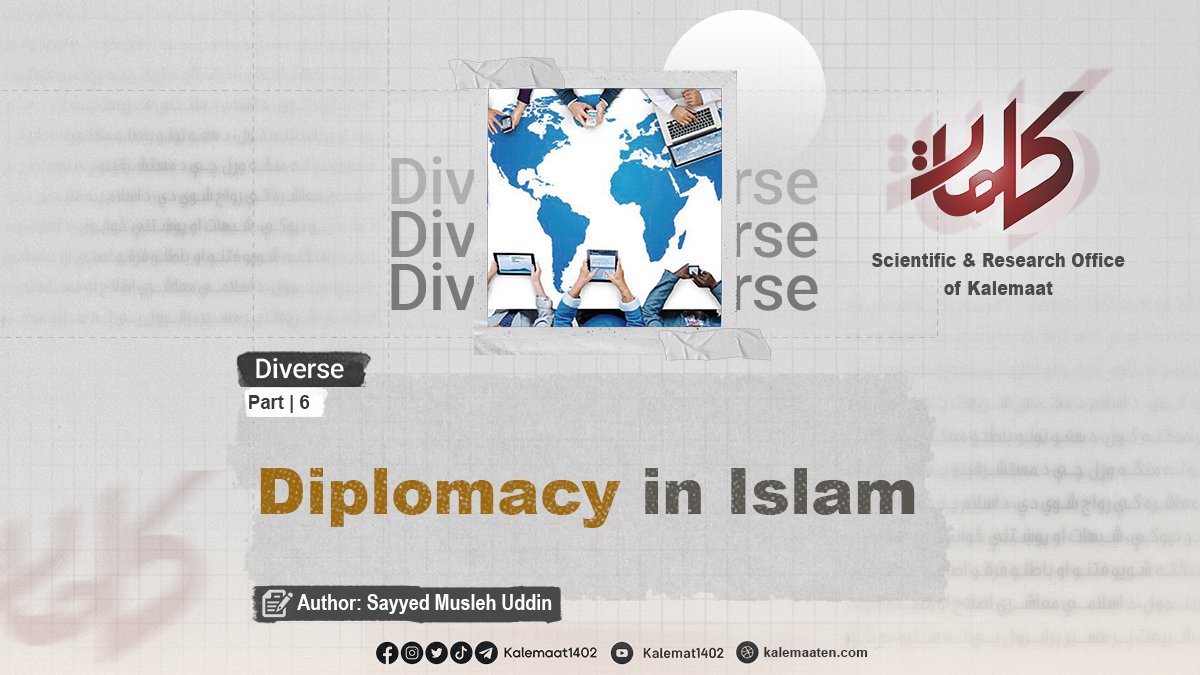
Author: Sayyed Musleh Uddin
Diplomacy in Islam (part 6)
Charlemagne and Haroon al-Rashid
In the mid-eighth century CE, processes of political stabilization were unfolding in both the East and the West. In the East, the decline of the Umayyad Caliphate paved the way for the rise of the Abbasid dynasty, which quickly moved to consolidate and stabilize its rule. In the West, internal dynastic wars signaled the emergence of a new Islamic state that was, in a sense, set to restore the former glory of the Umayyads for several more centuries.
At the same time, tribal conflicts and the struggles of barbarian states that had persisted since the sixth century in Central and Western Europe laid the groundwork for the establishment of the powerful French state. This new polity rapidly consolidated its authority through political and social stability, ushering in significant political and social developments during the medieval period. While Baghdad and Córdoba stood as symbols of Islamic power in the East and West, respectively, a struggle for legitimacy and influence was underway to lay claim to the legacy of the first Islamic states.
France emerged from paganism and internal strife and reached the pinnacle of transformation under Charlemagne, or Charles the Great. Like the early Abbasid caliphs and ʿAbd al-Raḥmān I, Charlemagne began his reign with military campaigns against rebels and opponents. After securing his authority, he turned his attention to conquests and establishing political relations. Charlemagne’s policy toward Islam was one of the most notable aspects of early French diplomacy. Interestingly, this policy appeared paradoxical: while Charlemagne was attempting to dismantle Islamic rule in al-Andalus, he was also corresponding with the Abbasid Caliph and sending envoys to establish friendly and political ties.
Nonetheless, the reality was that Charlemagne, recognized as a champion of Christianity, was driven primarily by religious motivations in his efforts to repel the pagan Saxon tribes from the banks of the Rhine and to push back against Islam beyond the Pyrenees. His engagement with the Abbasid Caliphate, therefore, served as a means to advance his broader religious and political objectives—namely, to defeat Islam in Spain and to support Christianity in the East.
The story of the relationship between Charlemagne and the Abbasid Caliph is recorded in French and ecclesiastical histories, though it is not mentioned at all in Arabic sources. French historians state that correspondence and diplomatic missions were exchanged between Charlemagne and Hārūn al-Rashīd, and that Charlemagne sought to strengthen this friendship. For this reason, he dispatched a delegation led by a Jew named Isaac, accompanied by two Christian envoys who died en route. Isaac alone reached the court of Baghdad and presented Charlemagne’s letter and gifts to Haroon al-Rashid.
Harun received the envoy with honor and welcomed the friendship of the French king. In return, he sent his own envoys to Charlemagne’s court, offering valuable gifts such as an Arab-style tent, a water clock, silk textiles, Eastern perfumes, golden items, a monkey, an elephant, and the keys to the tomb of Jesus (peace be upon him).
Some French historians have claimed that Haroon al-Rashid granted Charlemagne authority over all of Palestine or at least gifted him the city of Jerusalem. However, the majority of French historical sources maintain that Hārūn only sent the keys to the Holy Sepulchre as a symbolic gesture. Through his envoys, he conveyed to Charlemagne that due to the geographic distance between Palestine and France and concerns that deploying French troops to the region could incite unrest in France, the Caliph himself would assume responsibility for protecting the Holy Sites and would send the taxes from those sites to the French king. Ecclesiastical historians and some Saxon poems refer to this matter.
However, there is no doubt that these accounts are exaggerated and were dictated by church leaders to their chroniclers. These stories were not documented until the following century and are absent from the writings of Charlemagne’s contemporaries. Even Einhard, Charlemagne’s own biographer, makes no mention of such claims—though he does reference the elephant sent to Charlemagne as a gift from the Caliph.
Arab historians, for their part, have acknowledged relations between the Baghdad court and France, but they do not amplify the matter to the extent seen in ecclesiastical histories. They mention only certain courtly exchanges between the two sovereigns of East and West.
French historians note that Charlemagne was pleased with the outcome of his initial embassy to Haroon al-Rashid’s court, which prompted him to send another delegation, once again led by the Jewish envoy Isaac, to Baghdad. However, there is no detailed information available about this second mission. Furthermore, the exact dates of these diplomatic exchanges remain unclear, though it is likely that they took place in the early years of Haroon al-Rashid’s reign, between 786 and 790 CE (171–176 AH).
Continues…


